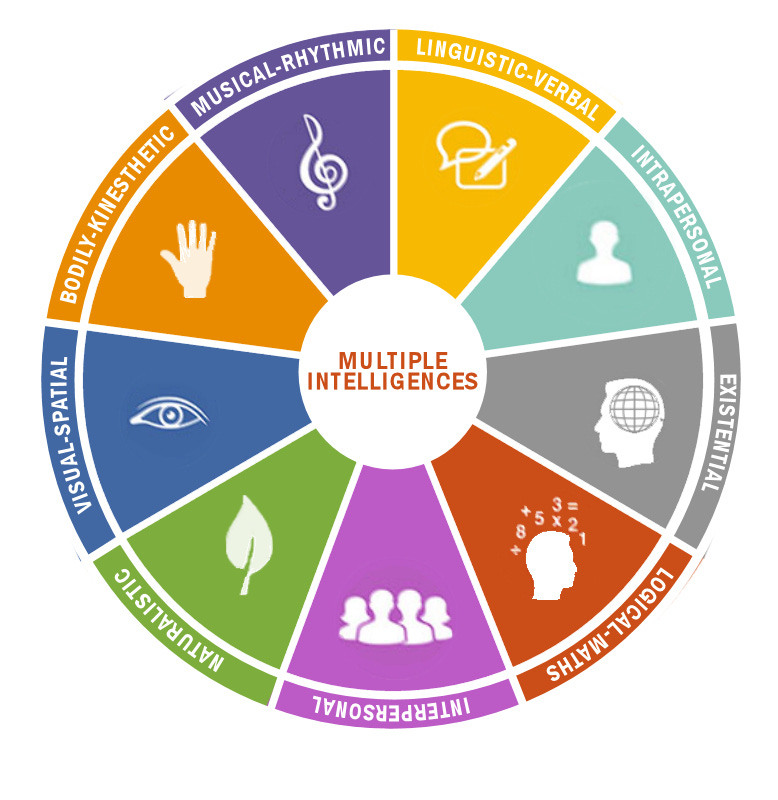👩🏫 Are you street-smart, book-smart, or ~other~ kinds of smart?
Using Gardener's 9 intelligence types to our personal growth advantage.
When you were younger, did you ever feel dumb because you could not solve a math problem? Or, were your parents ever worried that you could never make friends because you like to keep things to yourself?
Growing up, we were conditioned to think that intelligence is only defined by two categories: mathematical (manifests in science classes) or linguistic (in the form of social classes). If you don’t fit into the mold of these two categories, you might feel less brainy than others—which could result to a lower self-esteem.
It’s time to find out your actual intelligence type, and thrive as you are!
The big 9
American developmental psychologist, Howard Gardener, believes that each individual has a different intellectual composition. Based on his study—which involved interviews and brain research on hundreds of people including stroke victims and prodigies, he developed the theory of multiple intelligences. According to this theory, there are generally 9 types of intelligence:
Naturalist: The ability to discriminate among living things as well as sensitivity to other features of the natural world (clouds, rock configurations).
Musical. The capacity to discern pitch, rhythm, timbre, and tone. Enables us to recognize, create, reproduce, and reflect on music.
Logical-Mathematical. The ability to calculate, consider hypotheses, and carry out mathematical operations. Enables us to perceive connections using abstract.
Existential. Sensitivity and capacity to tackle deep questions about human existence, such as the meaning of life, why we die, and how did we get here.
Interpersonal. The ability to note distinctions among others, sensitivity to others' moods, and the ability to be open to other perspectives.
Bodily-Kinesthetic. The capacity to manipulate objects and use a variety of physical skills. Involves a sense of timing and mind-body union skills.
Linguistic. The ability to use language to express and appreciate complex meanings. Allows us to apply meta-linguistic skills to reflect.
Intra-personal. The capacity to understand oneself and one’s thoughts and feelings, and to use such knowledge in planning and directing one’s life.
Spatial. The ability to think in three dimensions. Core capacities include mental imagery, spatial reasoning, and image manipulation among others.
Learn more about the multiple intelligences theory in the summary by the Association for Supervision and Curriculum Development (ASCD) here.
The big question
An intelligence type is an indicator of your strengths and areas where you excel the most. The different types of intelligences are located in separate areas of the brain and can either work independently or together. While every person will score either low or high on each intelligence type, we will have 1 particular intelligence that dominates the way we understand the world.
Your intelligence type will determine which career you will naturally excel in, and which ways you can take to exponentially improve your personal growth.
So, what kind of smart are you actually? Take the free 2-minute quiz here.
Build on your genius
Oftentimes, people fall into the trap of thinking that they are great at one thing and end up spending a lot of money, time, and energy to enhance their skills at that one thing, when actually they are better off pursuing a path that is a true reflection of their potential. When you try too hard to be good at something and somehow still fail, it can cause you your confidence and waste your natural gift.
To save you the frustration of struggling to be the best at something you’re not meant to do, follow these 4 steps to leverage your intelligence type:
Acknowledge your unique intelligence. Replace the holes in your self-esteem—which might had been building since childhood, with empowering thoughts and recognize your worth.
Apply your intelligence in the right outlets. Find ways to use your intelligence in your current profession or in a hobby outside of work. It will boos your energy and make you feel more in control of your path. Take a peek on examples of how you can implement this here.
Improve and build on your intelligence. Regularly work on your craft by connecting with other people who share the same intelligence type and try out activities such as taking classes and getting an apprenticeship.
Recognize the intelligence of others. Look out for others who don’t share the same intelligence type as you, and bookmark them for when you might need their expertise later.
Read more and reflect deeper on your intelligence type by visiting the article here.
What did you think was your intelligence type, and is it aligned with the result you got? By understanding the suitable way for you to learn, hopefully you will be able to grasp things more easily, quickly, and comfortably.
Don’t forget to subscribe to Monday Mavens for more personal growth tips and follow us on Instagram for more productivity insights.
We’ll see you next week!

